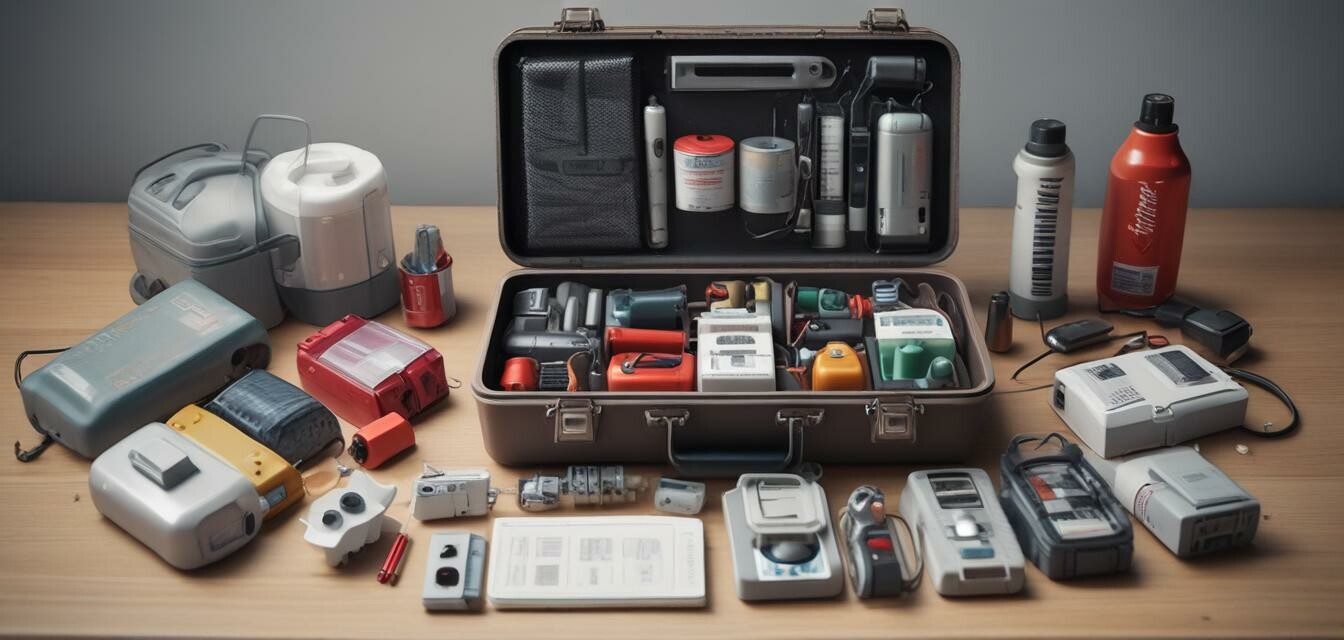
Emergency Preparedness for Urban Dwellers
Key Takeaways
- Compact and multifunctional emergency kits are vital for urban living.
- Prioritize essential items that can be easily stored and accessed.
- Know your local emergency protocols and resources.
- Utilize portable power stations for power outages.
- Create a family emergency plan and conduct regular drills.
Living in an urban environment poses unique challenges in emergencies, such as limited space and access to resources. However, with careful planning and smart solutions, urban dwellers can effectively prepare for emergencies. This guide will explore various strategies and tips tailored for city residents, focusing on space-saving solutions and efficient use of available resources.
Understanding Urban Emergencies
Urban areas are often more vulnerable to specific types of emergencies, including:
- Natural disasters (earthquakes, floods)
- Technological disasters (power outages, utility failures)
- Human-made disasters (terrorism, civil unrest)
Declining infrastructure and high population density can exacerbate the effects of these scenarios. As such, preparing in advance is crucial to ensuring your safety and that of your loved ones.
Creating Your Emergency Kit
Your emergency kit serves as your first line of defense in any situation. Since urban living typically requires efficient use of space, consider the following tips:
Essential Items to Include
| Item | Purpose | Recommended Quantity |
|---|---|---|
| Portable power station | Provides backup power for devices | 1 |
| Water (1-gallon per person per day) | Essential for hydration | 3-day supply |
| Canned food | Long-lasting food source | 3-day supply |
| First aid kit | Treat minor injuries | 1 |
| Flashlights | Lighting during power outages | 2 |
Space-Saving Solutions
Given limited space, it's important to make the most out of what you have. Here are some ideas:
- Use stackable storage containers to optimize vertical space.
- Store emergency supplies in multifunctional furniture, such as ottomans or storage benches.
- Keep a go-bag ready that contains essentials and can be easily grabbed in an emergency.
Utilizing Portable Power Stations
Portable power stations can be lifesavers during power outages. Here's why you should include them in your emergency plan:
- They provide electricity for small appliances and devices.
- Most are compact and easily stored.
- Efficient recharging options available, including solar charging.
To learn more about different types of generators and power options, visit our Portable Power Stations page.
Know Your Local Resources
As an urban dweller, it's crucial to be aware of local emergency resources:
- Emergency shelters in your area
- Local community centers providing resources during disasters
- Local government websites for updates on emergencies
Staying connected with local authorities will help you stay informed during an emergency. Check out our News & Trends section for updates on local emergency preparedness initiatives.
Developing an Emergency Plan
Creating an emergency plan ensures everyone knows how to respond in a crisis. Here's how to create one:
Steps to Create Your Emergency Plan:
- Designate a meeting place outside your home.
- Establish a communication plan to stay in touch with family members.
- Conduct regular practice drills to reinforce your plan.
For more detailed tips on emergency planning, explore our Preparedness Tips blog category.
Staying Informed and Prepared
Your safety during emergencies can significantly improve by staying educated and prepared. Follow these practices:
- Sign up for local emergency alerts.
- Attend community preparedness workshops.
- Read up on emergency preparedness resources available online.
Conclusion
While urban living might seem challenging during emergencies, having a solid preparedness plan can make all the difference. By creating a space-efficient emergency kit, leveraging portable power solutions, and staying informed, you’ll be well-prepared. Remember—it's not about the size of your space, but the smart use of your resources that counts when it comes to ensuring your family's safety.
Pros
- Compact emergency kits save space.
- Portable power stations provide essential energy during outages.
- Preparedness plans help coordinate family safety.
Cons
- Can require upfront investment in supplies.
- Limited storage options may restrict the size of your kit.
